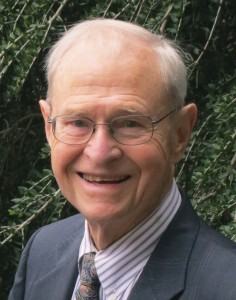Sociology’s Tour de Force

Ernest Q. Campbell, emeritus professor of sociology, former chair of the Vanderbilt Department of Sociology and Anthropology, and emeritus dean of the Graduate School, of Nashville, died July 28, 2013. He was 86.
Instrumental in revitalizing his department and the Graduate School through the recruitment of a notable and diverse group of scholars, Campbell established graduate training programs that furthered the university’s mission. He was nationally known for his sociology research in race relations, desegregation and education.
Campbell grew up on a farm in rural Oglethorpe County, Ga., in a family passionate about education. He finished high school early, starting classes at Young Harris College on his 15th birthday. Campbell began his teaching career at Berea College in Kentucky and then took a position at Mississippi Southern. After teaching at the College of Wooster in Ohio, Campbell earned his Ph.D. at Vanderbilt in 1956, taught at Florida State before pursuing postdoctoral studies at Harvard, and accepted a faculty position with the University of North Carolina at Chapel Hill.
He returned to Vanderbilt in 1963 to chair the Department of Sociology and Anthropology. “He was a tour de force in sociology,” says current sociology chair Katharine Donato. “He did some exceptional hiring while he was here and brought in major scholars. He set about putting Vanderbilt on the map in sociology for the next 50 years.”
Then-Provost Nicholas Hobbs asked Campbell to serve as Graduate School dean, a post he assumed in 1973. Campbell set about increasing the Graduate School’s resources and improving diversity among the students admitted. An important mission for him was attracting qualified African American students who were graduates of historically black universities.
Campbell was involved in numerous professional organizations. He served as president of the Association of Graduate School Deans and on the Council of the American Sociological Association.
In retirement he remained active in social, political and environmental causes, and as an avid tennis player. Campbell and his wife, Berdelle, were among the first preservationist pioneers in Nashville’s historic Germantown.
In addition to his wife, Campbell is survived by their four children and seven grandchildren.